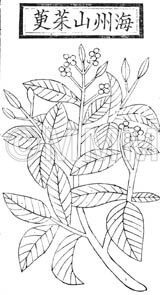Crude drug sample data base
※Click on the image to enlarge it.
The capital city, provincial capital city or the representative
location of its administrative area is indicated.
location of its administrative area is indicated.
34.341574
108.93976999999995
Production area information
People's Republic of China,Shaanxi Prov.
https://ethmed.toyama-wakan.net/img/pin_san.png
36.3418112
140.4467935
Collection information
Japan,Ibaraki Pref.
https://ethmed.toyama-wakan.net/img/pin_nyu.png
Scientific information data base
| Common name | 山茱萸, Shanzhuyu, Corni Fructus (JP18), (CP2020), Cornus Fruit (JP18), Asiatic Cornelian Cherry Fruit (CP2020) | |||||
|---|---|---|---|---|---|---|
| Synonyms | 杭萸肉 | |||||
| crude drug image |
| |||||
| Original plant name | Cornus officinalis Siebold et Zuccarini, (Sanshuyu) | |||||
| original plant image |
| |||||
| Family name | Cornaceae | |||||
| Used part | pulp of the pseudocarp | |||||
| Quality for selection | Good Shanzhuyu is red. It has a thick flesh and the seed is well removed. (TN) | |||||
| Official compendium | JP XVIII, CP (2020 ed.) | |||||
| Clinical application | As a tonic and astringent, Shanzhuyu is applied for tonifying the kidney, night sweat, frequent urination, soreness in the loin and knees, and endless menstruation. | |||||
| Medical system | Traditional Chinese medicine | |||||
| Drug effect in traditional medicine | Traditional classification | Astringents and haemostatics | ||||
| Beneficial effect | [Property and Flavor] Mild warm; sour and astringent. [Meridian Tropism] Liver and kidney meridians. [Actions] To tonify and nourish kidney and liver, astringe to secure collapse. [Indications] Dizziness, tinnitus, sore pain in the low back and knees, impotence, seminal emission, enuresis, frequent urination, flooding and spotting, vaginal discharge, profuse sweating, collapse, interior heat and wasting-thirst. | |||||
| Chemical constituent | Other aliphatic and related compounds (*C1): Malic acid, Tartaric acid, 有機酸/organic acid Monoterpenoids (*C1): Loganin, Sweroside, Morroniside Iridoids: (*C1): Cornin Hydrolyzable tannins & related compounds (*C1): Gallic acid (*C2): Trapain | |||||
| Chemical structure |
※画像をクリックすると、拡大して表示されます。 | |||||
| Pharmacological effect | Diuresis, decrease in the blood pressure, antibacterial (Staphylococcus aureus, cutaneous fungus), antihistamine, antiacetylcholine, suppression of automatic movement of small intestine. | |||||
| DNA sequence | U52033, L11219; Traditioal Medical & Parmaceutical Database. | |||||
| Classical reference (Chinese Herbal Classic "Zhenglei bencao") |  ※Click this image to see the actual image ※Click this image to see the actual image | |||||
| Disease | Heaviness and powerlessness in lumber and knee, Vertigo, Lightheadedness, Spermatorrhea, Frequent urination, Incontinence of urine, Irregular vaginal bleeding, Hypermenorrhea, Hyperhidrosis, Night sweats | |||||
| Formulation | Goshajinkigan, Hachimijiogan, Hachimigangoninjinto, Rokumijiogan, Shichikensan, Daisangoshichisan, Kogikujiogan | |||||
| References | JP18: The 18th edition of the Japanese Pharmacopoeia. CP2020: Pharmacopoeia of the People's Republic of China 2020 edi. C1) The Encyclopedia of Wakan-Yaku with Color Pictures Vol. I, pp 195-196. C2) Outline of Pharmacognosy, a Textbook, pp 261-262. | |||||
| Remarks | Fruits of Berberis sp. (Berberidaceae) produced in Shandong Prov., or fruits of Elaeagnus umbellata Thunb. of family Elaeagnaceae (Jap. name: Akigumi or Japanese Shanzhuyu), are sometimes available in the market as fakes. Since the medicinal benefits are completely different from the real one, they should be used carefully. | |||||
| Last renewal date | 2024/02/05 | |||||












